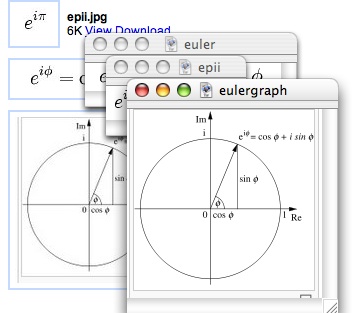veritas
[]
university
[[]]
is2k7
[[[]]]

[[[[]]]]
time to move the questions off the front page
put up our agenda
university – knowledge over authority
an address to authority that speaks from university and says: this is what we want.
declare university
give it substance in the net
on thursday may 31, 2007
we ask an invited group to a meeting under chatham rules to discuss inputs and outputs and issues of connectedness.
on thursday evening, may 31, 2007
we party
food for thought dinners with a late night event
on friday june 1, 2007
we gather for a keynote and briefing by john palfrey
we honor sid verba
we break into groups and go to work
Conference Working Groups
UNIVERSITY and the RIAA
Suits brought against members of University by the RIAA bring up issues revolving around the role and identity of University and copyright. Universities are being asked to absorb financial and non-monetary costs of the record companies’ enforcement, in a way that distorts their educational mission. In the name of “intellectual property,” the academy is asked to compromise students’ privacy, limit their access to genuine educational resources, and restrict their opportunities for new creative expression. Should Universities be the Copyright Police?
The Expressed Identity of UNIVERSITY
With digital tools such as message boards, social networks, and search engines making University and its clients’ identities more public than ever, navigating the integrated media landscape for students and other members of University has become increasingly difficult. In a world where anonymous postings can have lasting effects on the professional and personal lives of students, and when University clients and their digital identities can be expressions of the University as a whole, this workshop will focus on how we begin to navigate this space and how we form the digital identity of University.
UNIVERSITY Agenda for Fair Use
The Center for Social Media at American University and documentary filmmakers wrote a report on Best Practices in Fair Use to help navigate the waters of copyrighted materials and to determine when material use can be considered Fair Use. Much like documentarians, members of University communities are often riddled with questions as they create and express their work. How can we create Best Practices in Fair Use document for Universities similar to the one created for documentary filmmakers?
Alternative UNIVERSITY Models for Scholarly Publications
The ways in which professors, academics and students and professionals release their work into the world are changing. The old models of scholarly publishing, in which most work is turned over to a publishing company just to be purchased back by the Universities from which it originated, are challenged as the printing press is replaced by digital distribution. How can Universities progress open access models of scholarly publications through repositories, modes of licensing and support of open access journals?
Open Access at UNIVERSITY – OpenCourseWare and Beyond
MIT’s OpenCourseWare, along with numerous other University-lead open access learning initiatives, has revealed the world’s thirst for open access knowledge and learning. What have we learned from previous efforts, and how and in what ways can Universities harness the potential of making their course material open access? How do we give knowledge, once put online, a sense of “life” – how do we make it “living” knowledge to be shared and developed with learners around the world?
Connecting UNIVERSITY and Localized Curricula
How can Universities contribute their specialized knowledge to teachers and educators across the world through technological tools and resources such as One Laptop Per Child, university Presidential Instructional Technology Fellowship (PITF) programs and Scratch? How can middle management structures connect University with children in developing nations, and provide materials that can be adapted and cultivated for local needs? How can we encourage local Universities to form PITF programs?
UNIVERSITY Relationship Building – Power, Funding and Transparency – Who’s the Authority, Anyway?
The relationships between University and business, philanthropy, government and other funding sources grow increasingly complex as all these entities enter into relationships that are meant to fund knowledge creation. As each party in University relationships has their own goals, what steps need to be taken to build more fruitful bonds? How do the relationships change as the mode of knowledge dissemination leans toward open access models? How is funding negotiated, and how can the integrity of the produced work be maintained?
UNIVERSITY as client. Progressing General Counsels on Intellectual Property Issues
How are General Counsels at Universities advancing academia into the digitized age and how, as lawyers for Universities, do they view intellectual property issues? In what ways do Universities and their General Counsels need to be on the cutting edge of shared resource and knowledge promotion? How does this counter the position to keep Universities from being sued?
Social and Cultural UNIVERSITY Communities Online and Off
How can University sponsored events leverage their reach, build communities and keep the conversations going after the conference ends?Using as a case study the Dred Scott conference held by the Charles Hamilton Houston Institute for Race and Justice in April, we will discuss how history relates to the present and future, and also look at how the internet and new technologies can help universities as they work to convene social and cultural gatherings (as opposed to purely academic).


